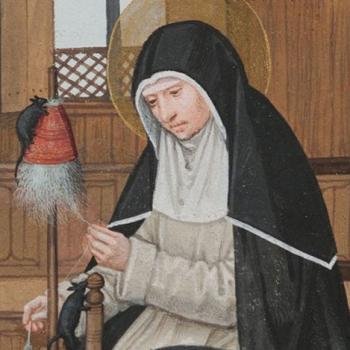In several ways, therefore, the very project of theology within modern Paganism is a queer thing, in the sense of "queer" being somewhat strange or unusual—and this is the case not only for the project of theology as it has been understood in other religions for the past few centuries, but also for many modern Pagans who are adverse to theology and have not separated the activity and the methodology from its products in other religions. Theology deals with those dimensions of human life that are the most queer of all: those divine experiences that tell us that there is more to the world than what is readily apprehended by the senses, even though (from a Pagan viewpoint) being embedded in those very same sensual contexts can give these insights into divine realities.
So, if these suggestions are useful about the nature of theology generally and its role within modern Paganism (and I hope they are!), in the next installment of this column I'll actually deal more directly with "Queer Theology" itself, what it is, and how and why it can be useful. Until early May, then!





